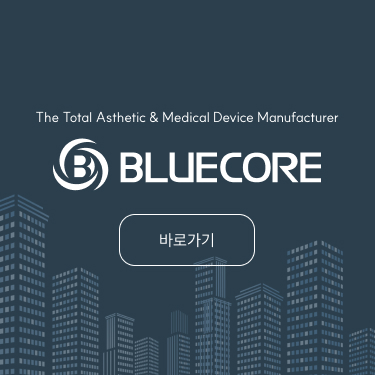10 Mobile Apps That Are The Best For ADHD Diagnosis Near Me
페이지 정보

본문
People who suffer from untreated ADHD might have difficulty getting up, keeping focused at school or at work, meeting deadlines, and regulating their impulse-driven behavior. They may also have problems with their finances and relationships.
A professional assessment for ADHD is the first step to treating the disorder and conquering it. The evaluation could include tests for IQ, memory inkblots and inkblots as well as mental health and ADHD symptoms self-reports.
Diagnosing ADHD
You might be concerned that you may have ADHD if you are frequently forgetting where you put your car keys, or unable to focus at work. Finding out if you have adhd private diagnosis will help you take control over symptoms that cause issues at home and work. A qualified professional can assess your child or yourself to determine if ADHD is present. This includes reviewing the symptoms you've been experiencing and assessing your performance at work, school or in relationships. The evaluation will also examine your past to determine if you have had certain trauma or medical issues that could cause symptoms that are similar to ADHD.
ADHD can be diagnosed at any time. To get a adhd diagnosis a diagnosis, the person needs to have six or more symptoms of inattention and hyperactivity/impulsivity over the course of six months. The symptoms should be evident in multiple settings, like at work, school, or home. The symptoms should also affect the person's relationships, their schoolwork or their work.
The evaluator will interview you in depth to determine an accurate diagnosis. They will look at your child's developmental, emotional, and behavioral background from childhood to the present. They will also inquire about your child's social life and how their behavior affects them at school in their relationships, as well as in the workplace. The evaluators may request written feedback from teachers or caretakers and conduct observational assessments of the child's behaviour in various environments.
Some evaluators may conduct other tests to rule out any conditions that may have symptoms that are similar to the symptoms of ADHD. This could include cognitive tests to identify learning disabilities and screening for mood disorders such as bipolar disorder or anxiety. They may also screen for seizures and thyroid disorders which can cause symptoms that are mistakenly diagnosed as ADHD.
Choose a specialist who is knowledgeable about the disorder and whose approach to evaluating ADHD is one that you are comfortable with. Consult your primary care physician or therapist diagnostic criteria for adult adhd (Visit Homepage) recommendations and look up reviews of specialists online. Ask other people who were evaluated by the specialist that you are considering what their experience was. It is also important to know what the fee for the evaluation is and whether or not your health insurance will cover the evaluation.
Medicines
ADHD medications help individuals with symptoms of attention deficit hyperactivity disorder. These drugs are usually stimulants that help increase concentration. They also help reduce the tendency to be impulsive and increase the ability to begin, complete and complete tasks. The medication is an essential part of ADHD treatment. They can be used on their own or in conjunction with psychotherapy.
Untreated ADHD can cause problems in both the professional and personal lives of an individual. The signs could include difficulty at school or work as well as relationships issues and issues with self-esteem. If you or someone you know is experiencing these symptoms, it's crucial to find a qualified medical professional for an evaluation and treatment.
A psychiatrist or a primary care physician who is specialized in mental health and ADHD is the best choice for someone with ADHD. A psychiatrist will have training in diagnosing and treating disorders such as anxiety, depression bipolar disorder, depression and more. Primary care doctors are also familiar with family dynamics and a lot of them will treat the entire family of a patient.
You may need to consult an expert if you have ADHD symptoms are severe. If you were not properly diagnosed or treated as when you were a child, you'll require the services of a specialist. A specialist in adult ADHD will also make sure that you receive the right dosage of medication.
Adults with ADHD are typically prescribed stimulant medications. These medications reduce symptoms of ADHD by acting on dopamine receptors within the brain. Non-stimulant drugs like atomoxetine can also be used to manage the symptoms of ADHD. These drugs work on the dopamine and norepinephrine system in the brain to improve concentration and reduce the risk of impulsivity.
They have the education and expertise to ensure that you receive the correct dose of the correct medication. They can also assist you to identify the necessary lifestyle changes to help manage your symptoms.
While there are several benefits to seeing an expert in mental health for your ADHD however, it's important to remember that the most effective practices don't necessarily have the prettiest office or the most attractive doctors. The most effective practice is one that provides symptom relief and helps you succeed in your daily life.
Therapy
Many people suffering from ADHD live their entire lives without receiving a professional diagnosis. This could be due to a variety of reasons, such as the fact that they have mastered their symptoms. They might even experience positive effects on their daily lives and relationships. Untreated ADHD can create significant problems for those suffering from it. These problems can include poor performance at school and work and problems with family members, and relationships that are not as good. It is essential to seek a proper diagnosis and treatment as early on as possible.
Some signs of ADHD in adults include trouble with time management and planning, inability to focus on a task for long periods of time, as well as difficulties keeping a consistent routine. The disorder can lead to emotional issues, which can be expressed through physical or verbal means. Many adults with ADHD experience fidgeting, restlessness, and impulsive behavior that can result in anger or frustration. Others have trouble maintaining healthy diets or exercise habits.
A person with adhd how to get diagnosed may find relief using different types of therapy. The treatments be a range of cognitive behavioral therapy to teaching the ability to cope. The use of medications is also widely used to treat the condition. Drugs that stimulate the brain, such as methylphenidate and amphetamine can improve concentration by boosting brain chemicals. Nonstimulant medications, like atomoxetine or Stratterra can reduce symptoms without causing any side negative effects.
Other treatments for adults with ADHD include counseling, lifestyle changes and job coaching. Counseling can help people with ADHD develop coping strategies to improve their overall health and performance at work and school. Individual or group counseling sessions are both options. Some adults with ADHD struggle to interact with their friends and colleagues due to their hyperactivity, inattention, and impulsive behaviors. In those cases therapy can provide guidance to help them build stronger relationships.
Making lifestyle changes is essential in treating ADHD. Eating a balanced diet, exercising regularly and creating a regular sleeping schedule can all help to manage ADHD symptoms in adults. Learning to recognize the triggers that cause people suffering from ADHD to lose their focus and impulsivity can aid them in avoiding stress and anxiety that is not needed.
Lifestyle Changes
With the correct diagnosis and treatment, ADHD can be reduced or eliminated. Adults can take the same medications that children take including stimulants such as Ritalin (methylphenidate) and non-stimulant medicines (atomoxetine such as Strattera). Behavioral therapy can also aid. It teaches you how to get an adult adhd diagnosis to manage emotions as well as self-esteem, time management, and emotions as well as improve your work and social abilities. Some adults may benefit from cognitive-behavioral therapies that focus on reversing negative feelings and thoughts to improve performance.
If you've been diagnosed with ADHD If you have been diagnosed with ADHD, you must make some changes in your lifestyle. A diet that is high in fruits and vegetables and getting enough sleep and being physically active can greatly reduce the symptoms. You should also share your diagnosis with family members and acquaintances to assist you in managing your symptoms and provide assistance. You should also discuss your diagnosis with teachers and employers. They may offer accommodations, such as more time for tests or in quiet areas.
If you're diagnosed with ADHD it can be difficult to accept the fact that you're dealing with a problem. You might feel shame and shame, particularly if you were diagnosed in adulthood. It's not your problem. You did not decide to develop ADHD. It is an illness of the brain that has impacted your life since the time of your birth.
Many adults suffer from ADHD symptoms into adulthood, particularly in the event that they were not diagnosed as children. Once you've been diagnosed it will be easier to comprehend the impact your ADHD issues have had on your life. You can then learn to cope with the challenges of ADHD and build a rewarding life that is fulfilling and enjoyable.
ADHD is a condition that can be diagnosed by psychiatrists or neuropsychologists. Additionally, you might have to undergo physical examinations to determine if you have other conditions that can cause similar symptoms, such as lead poisoning or sleep apnea. Your doctor will also interview you and your family members to determine if you have other mental health issues, like anxiety or depression. They may also ask to speak with a close person or a relative to gain a perspective on your childhood behavior.

- 이전글10 Things That Your Family Teach You About Repair Patio Door Lock 24.09.29
- 다음글You'll Never Be Able To Figure Out This Sliding Patio Door Repair Service's Tricks 24.09.29
댓글목록
등록된 댓글이 없습니다.







